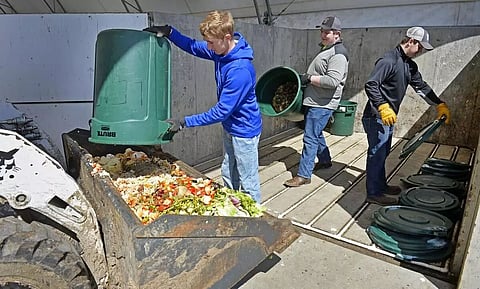
- Home
- Live Blog
- Breaking News
- Top Headlines
- Cities
- NE News
- Sentinel Media
- Sports
- Education
- Jobs

Canberra: A large-scale organics recycling facility will open in Australia's capital city of Canberra to strengthen its circular economy.
The Australian Capital Territory (ACT) government announced funding for a new Food Organics and Garden Organics (FOGO) facility to process Canberra's waste. It comes after a successful trial of a FOGO collection pilot servicing 5,000 households in the city's northern suburbs.
The service diverts food waste from landfill and reduces harmful greenhouse gases by turning food scraps and garden waste into compost for the soil. "We are investing in new waste infrastructure that will support Canberrans to take everyday action on climate change and reduce our city's future emissions," Chris Steel, ACT's minister for transport and city services, said in a statement.
"Food and garden waste can be transformed into nutrient-rich compost and removing these items from our landfill will help cut waste emissions by up to 30 per cent." The trial programme achieved a contamination rate lower than 0.1 per cent in the first three months. Steel said the government would build a large-scale FOGO processing facility as an essential step towards rolling out a Canberra-wide collection service.
The government has identified a site near the existing Materials Recovery Facility (MRF) south of Canberra for the new facility. When built, it will be capable of processing up to 50,000 tonnes of FOGO material every year, with the capacity to expand to 70,000 tonnes to meet future demand. The ACT, where roughly one-third of the household rubbish bin is food, currently sends approximately 26,000 tonnes of food waste to landfill every year.
"FOGO is a key part of our plans for Canberra's circular economy - turning things currently considered waste into valuable products like compost, which can be used in agriculture, viticulture and the parks and gardens of our whole region," Steel said.
Also read: Russia registers nasal version of Sputnik V
Also watch: